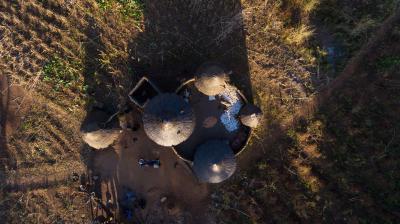Chief or Big-Man Politics in Post-War Sierra Leone?
This article was originally published by Cambridge Core / Cambridge University Press.
Since African independence there has been extensive debate over how African power is organized. The transposition of a Western Weberian state (bureaucratic, some form of a balance of power, constitution and elections) met systems of governance that pre-dated colonial rule and others heavily shaped by it.
The resulting mixture generated forms of governance and power that continues to generate puzzles.
One of the debates has been over the source of power of individual elites in ‘neo-patrimonial’ context. Marshall Sahlins - an anthropologist - wrote on persons with personal power, influence, networks, and control over their followers within the political sphere. Sahlins coined the term “big-men” which would become a common label to describe African politicians. Studies of the War in Sierra Leone and its immediate aftermath have been rife with examples of big men. Sahlin pitched "big-man" against “chiefs”. "Chiefs" were individuals who obtained their authority from semi-hierarchical, formalized, and de-personalized rule.
This article argues that what used to be big-man have turned into chiefs. In Sierra Leone (and elsewhere) post-war reconstruction has institutionalized 'big-man' into formal state structures and party outfits . The “new” reality is that state and party institutions are central in making new big-men and in determining and structuring the composition of and interactions within big-man networks. Formal institutions increasingly shape, constrain, structure, and “configure” the political class.
Based on information from a database of 305 nationally important big-men in Sierra Leone and over a year of in-country anthropological research, it is clear that present networks almost perfectly correlate with formal institutions implying that fully personalist interpretations cannot be maintained. Rather formal institutions such as elections, formal office, and parties in turn have become major co-determining factors of big-man network formation.
This new reality has a distinct impact on big-man networks; they see limited movement at the top; as senior big-men seek party office to protect themselves against powerful leaders through decades of investment in the party. Furthermore, their personal networks of followers are institutionalized, which binds big-man to their party. Both factors limit senior big-man movement. Institutions are also the origin of ethnically inclusive and heterogenous networks. In Sierra Leone’s, the two-party system forces both parties to seek a diverse array of big-men.
This article, once again, highlights how the mixture of externally induced political change (through post-war reconstruction) and existing political practice have extensive unintended consequences. If anything it warrants modesty and restraint in enforcing political change.
Kars de Bruijne is a Senior Research Fellow with Clingendael's Conflict Research Unit.




